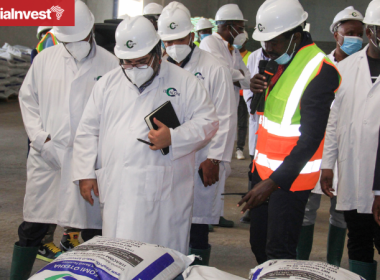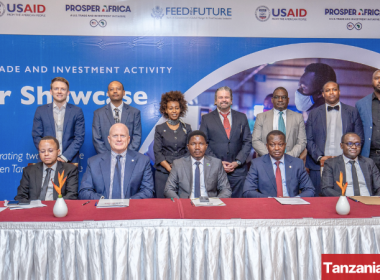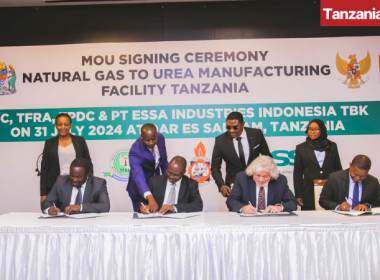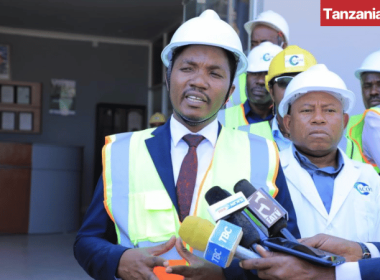Fertilizers
Fertilizer Use in Tanzania
According to the World Bank collection of development indicators, in 2018 the fertilizer consumption of Tanzania was 15.858 kilograms per hectare of arable land.
The use of fertilizers in Tanzania is extremely low and remains below recommended rates, and low-input and rain-fed subsistence farming dominates Tanzania’s agriculture, contributing to poor crop yields.
The Fertilizer Industry in Tanzania
Primary fertilizers used in Tanzania include urea, and the blends Di Ammonium Phosphate (DAP), calcium ammonium nitrate (CAN), and nitrogen-Phosphorous-Potassium fertilizer (NPK).
While the official government recommendation for one acre of maize production is 50 kg of urea and 50 kg of DAP, farmers on average apply fewer than nine kilograms of fertilizer per acre.
Fertilizer Prices in Tanzania
High prices inhibit access to fertilizers by small-scale farmers (SSF). More than 90% of all fertilizers used in the country are imported and their price is high.
This is why the Ministry of Agriculture of Tanzania introduced in 2017 the fertilizer bulk procurement system (FBPS) to lower retail prices and enhance access to and increasing the use of fertilizers.
Through these regulations, all importers submit their requirements to the Tanzania Fertilizer Regulatory Authority (TFRA). TFRA was officiated in 2012 with the purpose of regulating the manufacturing, importation, marketing and use of fertilizer in the country.
According to FBPS, a tender is announced and one prequalified successful bidder imports all the fertilizer on behalf of others using his own source of funds.
The prices of fertilizers for farmers fell by 40% and their use increased by 69%, from 302,450 tons season 2015/16 up to 435,178.48 tons in 2017/18.
However, the prices have been increasing since mid-2020 mainly due to strong demand.
According to the Tanzania Ministry of Agriculture, the prices for Di-ammonium Phosphate popularly (DAP) increased by +1.7% while the price for Urea decreased by -7% between March and April 2021.
A modest increase is forecasted throughout 2021 due to the prolonged second wave of Covid-19.
In July 2021, the Minister of Agriculture of Tanzania Hon. Adolf Mkenda announced that the government has decided to abolish the fertilizer bulk procurement system (FBPS) as it did not show as great results as the government had hoped. This would increase competition and the availability of farm inputs to farmers.
However, in March 2021, TFRA released a statement to regulate the price of fertilizers sold in Tanzania.
The decision goes against the previous abolition of the FBPS and was taken after the government’s deliberations with fertilizer importers and sellers following a sharp increase in prices in recent months.
On average, 50 kg bags of fertilizer will now be sold between TZS 73,468 to TZS 75,526, while 25 kg bags will trade between TZS 3Z734 and TZS 33,763.
Another challenge to the use of fertilizers is their perceived quality. According to the study titled “Misperceived Quality: Fertilizer in Tanzania”, Tanzanian farmers suspect that available fertilizers are often adulterated, but these concerns are not backed by reliable evidence.
Often Tanzanians believe that fertilizers available in local shops are substandard, and such concerns are reinforced by stories in popular newspapers. Thus farmers believe the quality of fertilizer on the market is poor.
The authors of the study surveyed all fertilizer sellers in Morogoro Region, Tanzania, and tested 633 samples of their fertilizer.
They found that fertilizers meet nutrient standards but also found evidence of a quality inference problem in the market: 25% of fertilizer has deteriorated in observable ways.
Farmers rely on these observable attributes to (incorrectly) assess unobservable nutrient quality, and this misperception likely reduces fertilizers’ use.
Consistent with expectations of low quality, the study found that Tanzanian farmers are willing to pay considerably less for untested fertilizers in the market than they are for lab-certified fertilizers.
Last Updated: 24th March 2022
Sources: Tanzania Fertilizer Regulatory Authority (TRFA), Tanzania Ministry of Agriculture, World Bank (WB), Munich Personal RePEc Archive (MPRA), Alliance for a Green Revolution in Africa (AGRA).

















